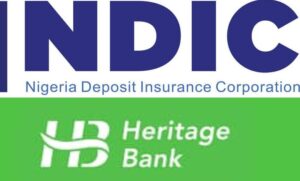Green Economy: Employment records hit 12,500 in three years of Lagos Recycle Initiative
By Moses Adeniyi
No less than 12,500 persons have been employed within the value chain of waste recycling in Lagos within the space of three years, the State Government has disclosed.
The three years period under review was September 2019 and September 2022 when the Lagos Recycle Initiative (LRI) was officially launched.
At the event by the Lagos State Waste Management Authority (LAWMA) to commemorate three years of Lagos Recycle Initiative (LRI), the Managing Director, LAWMA, Ibrahim Odumboni, made the disclosure, mentioning that the State has grown from the three official recyclers who formed the pioneering stakeholders as at September 5, 2019, to 157 registered recyclers in Lagos.
“What have we done since then? There were three official recyclers then (2019), but now we have over 157 registered recyclers in three years. We’ve also created job opportunities for over 12,500 persons in the last three years.
“We’ve also formalised recycling in such a way that we are now doing it with a lot of swagger.
“The values of recyclables have gone up from N15 on that day, (and) now, that same product is worth N150 – N170, not because of inflation, but because of understanding the value chain and the need for us to grow it,” Odumboni said.
He mentioned that by May 29, 2023, that the value would have appreciated to about N250 by projections, calling on Lagosians to optimise the benefit.
The LAWMA boss said efforts by investors have recorded daily processing of 4.5million plastic bottles out of Lagos and a corresponding recycled 4.5miilion bottles daily to manufacturers.
He said with engagement with stakeholders about 170 recycling centres would be established in the State before the end of 2023, warning all producers who have not joined the clean-up of plastic pollution in the State to act responsibly by keying into platforms created for same.
Other efforts the LAWMA boss mentioned were put in place within the three year period include: the introduction of the system to school curriculum with waste to wealth teachings; partnership with public and private stakeholders, among others.
Applauding the Governor Sanwo-Olu led Administration on the interest in recycling, he said the interest wasn’t for money but for sustainable environment.
He called on Lagosians to join the vision, stating that it was important for all to embrace the waste sorting system to operationalise and optimise the benefits of Waste to Wealth initiative.
The President, Lagos Recyclers Association (LAGRA), Dr. Femi Adegoke, said the initiative as a fundamental development drive for waste to wealth has grown since 2019.
He said in line with the vision of zero tolerance for waste to protect the ecosystem, the initiative in three years has involved critical engagement, which has encouraged inclusion and expansion of waste to wealth value chain in Lagos.
According to him, the initiative has created empowerment opportunities while attracting international attention for investment in the State.
He enjoined all to join the zero waste campaign to minimise waste menace through recycling system “for an efficient and sustainable circular economy.”
Speaking, the Managing Director, Polysmart Packaging Limited, Mr. Wasiu Balogun, said it was important for Lagosians to optimise the deliverables of the value chain.
He said it was important to monetise the waste to wealth value chain to solve poverty, stating that Lagos lose about N8 – N10billion annually for only pet bottles.
Speaking, the Director Public Affairs, Communication and Sustainability, Coca-Cola, Nigeria, Nwamaka Onyemelukwe, said the recycling system works on collective responsibilities.
She said the campaign must be well driven across societal institutions, including schools for sustainable environment and wealth creation.
She called on all stakeholder to work with the Government to achieve the green economy initiative.
The LRI involves the collection of recyclables from the point of generation with Community Recycling/drop off centers at different Local Government Areas/LCDAs with recyclers and aggregators assigned for collection of these recyclables.
The LRI harmonises all recycling programmes of LAWMA and bring together all key players in the production, utilisation, collection, buy-back and recycling of materials in Lagos State using the PAKAM APP.




